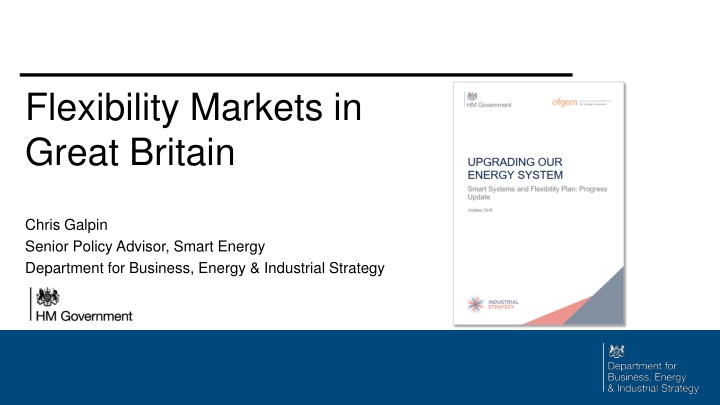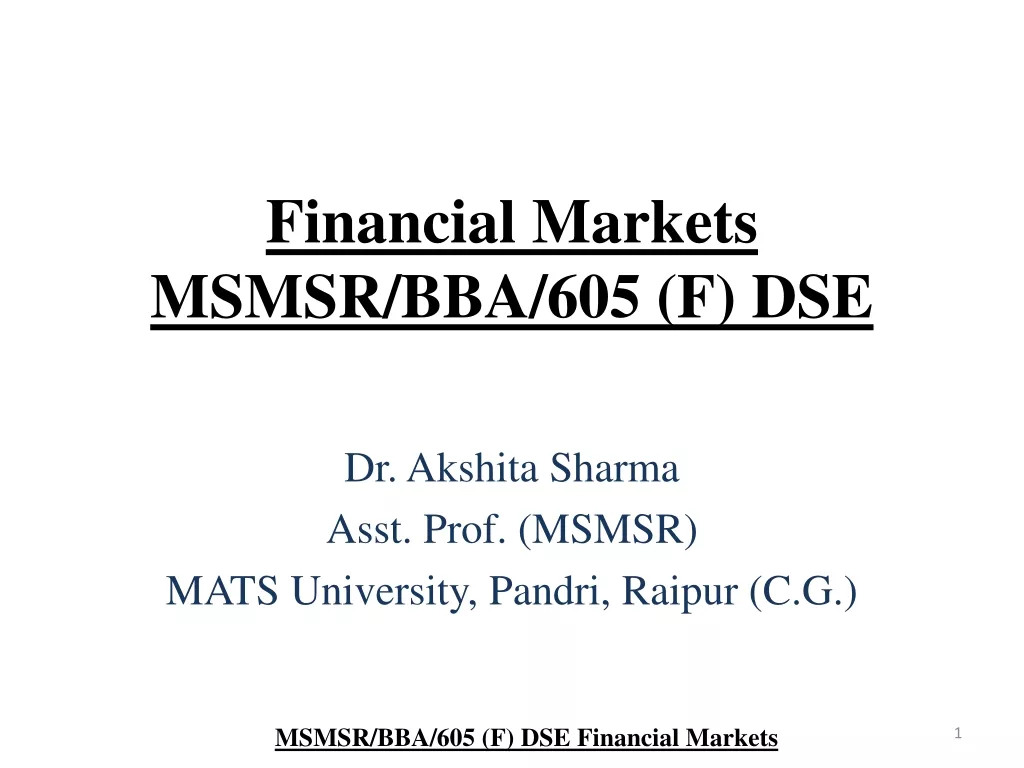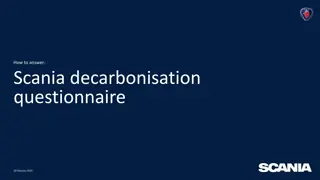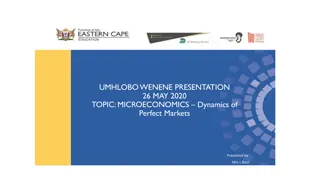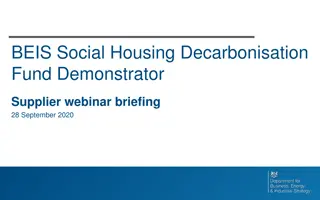Flexibility Markets in Great Britain - Decarbonisation and Implications
Markets in Great Britain are evolving to support decarbonisation efforts through flexibility. The UK Climate Commitments for Net Zero Emissions by 2050 showcase a commitment to sustainable energy practices. Power sector advancements, including distributed energy growth and smart electricity systems, are key in reducing carbon emissions and achieving climate goals. Flexibility, such as storage and demand side response, plays a critical role in integrating low carbon technologies effectively.
Download Presentation

Please find below an Image/Link to download the presentation.
The content on the website is provided AS IS for your information and personal use only. It may not be sold, licensed, or shared on other websites without obtaining consent from the author.If you encounter any issues during the download, it is possible that the publisher has removed the file from their server.
You are allowed to download the files provided on this website for personal or commercial use, subject to the condition that they are used lawfully. All files are the property of their respective owners.
The content on the website is provided AS IS for your information and personal use only. It may not be sold, licensed, or shared on other websites without obtaining consent from the author.
E N D
Presentation Transcript
Flexibility Markets in Great Britain Chris Galpin Senior Policy Advisor, Smart Energy Department for Business, Energy & Industrial Strategy
Contents Decarbonisation and implications for the power sector Why flexibility is key to decarbonisation What is Government doing to support flexibility? Flexibility Markets in GB
UK Climate Commitments Net Zero Emissions by 2050 UK carbon budgets and 2050 target The UK has signed and ratified the COP21 Paris Agreement 88 Mt In 2019, the UK became one of the first major economies to legislate for zero greenhouse gas emissions by 2050. (Base Year) (24% lower) 3,018 Mt (30% lower) 2,782 Mt (36% lower) 2,544 Mt (51% lower) (57% lower) 1,950 Mt 1,725 Mt The UK Climate Change Act has cross- government support and includes legally-binding carbon budgets. Net Zero (100% lower) Base year (1990/95) First Carbon Budget (2008-12) Second Carbon Budget (2013-17) Third Carbon Budget (2018-22) Fourth Carbon Budget (2023-27) Fifth Carbon Budget (2028-32) 2050 target Source: BEIS, UK legislation Flexibility Markets in GB
Power is leading the way on carbon 79% Reduction in annual CO2 emissions (1990-2018) 33% of power came from renewables in 2018 44.3 GW 2018 renewable electricity capacity 110 TWh 2018 renewable electricity generation Flexibility Markets in GB Source: BEIS: Digest of UK Energy Statistics (DUKES), BEIS Energy Trend
Distributed, local energy is growing 116% Growth in distributed connected capacity (2011 2018) 10.5GW Solar added between 2011-2018 Vision and Objectives Source: Digest of UK Energy Statistics (DUKES) Flexibility Markets in GB
A smart electricity system Emerging System dynamic & decentralised Yesterday Research by the Carbon Trust & Imperial College estimates the benefits of a smart, flexible energy system at 17 - 40bn to 2050. Carbon intensive Low carbon Decentralised Bi-directional energy flows Vision and Objectives Centralised generation One-way energy flow Flexibility Markets in GB
Flexibility is key to decarbonisation A smart and flexible energy system enables the integration of high volumes of low carbon power, heat and transport technologies. Sources of flexibility: Storage Demand side response (DSR) o Smart appliances o Smart charging of Electric Vehicles (EVs) and Vehicle-to-Grid (V2G) o Flexible heat pumps o Backup generation Electricity interconnectors Network hardware, software and services Flexibility Markets in GB
Smart Systems & Flexibility Plan (SSFP) Sets out actions for Government, Ofgem and Industry to be completed by 2022 Objective to create a best-in class policy and regulatory environment for smart technologies 26/38 of the actions have been completed. Remaining 12 to be completed by 2022 Government and Ofgem are considering the next phase of Smart Energy policy taking into account our net zero ambitions. Flexibility Markets in GB
Smart Plan Key Areas Removing barriers to smart technologies (storage) Unlock the potential of energy system data Smart homes and businesses Markets that work for flexibility + Flexibility Markets in GB
Markets that work for flexibility Well designed markets ensure efficient, fair and transparent outcomes. Capacity Market New Getting this right provides flexibility providers with new revenues and opportunities to reduce carbon. markets at distribution level Balancing Mechanism Flexibility Markets Our aims: Open up markets to smaller players/ new technologies & business models Enable businesses to realise the true value of their services Improve co-ordination across the system Allow flexibility providers to compete with more traditional energy solutions Ancillary Services Wholesale Market Network Charging Flexibility Markets in GB
Flexibility marketplaces We re creating new markets for flexibility We re making existing markets easier to access But taking part can still be complicated Flexibility marketplaces, such as the Cornwall LEM, bring buyers and sellers together. BEIS is also funding the 4m Flexibility Exchange innovation competition to explore this idea further. Flexibility Markets in GB
Summary a smart, flexible system The transition is underway The electricity system will need to change to deliver a zero carbon energy system. Flexibility is key to low-cost decarbonisation UK Government is removing barriers to new technologies and creating markets for flexibility Flexibility marketplaces make it easier to access multiple revenue streams Flexibility Markets in GB
